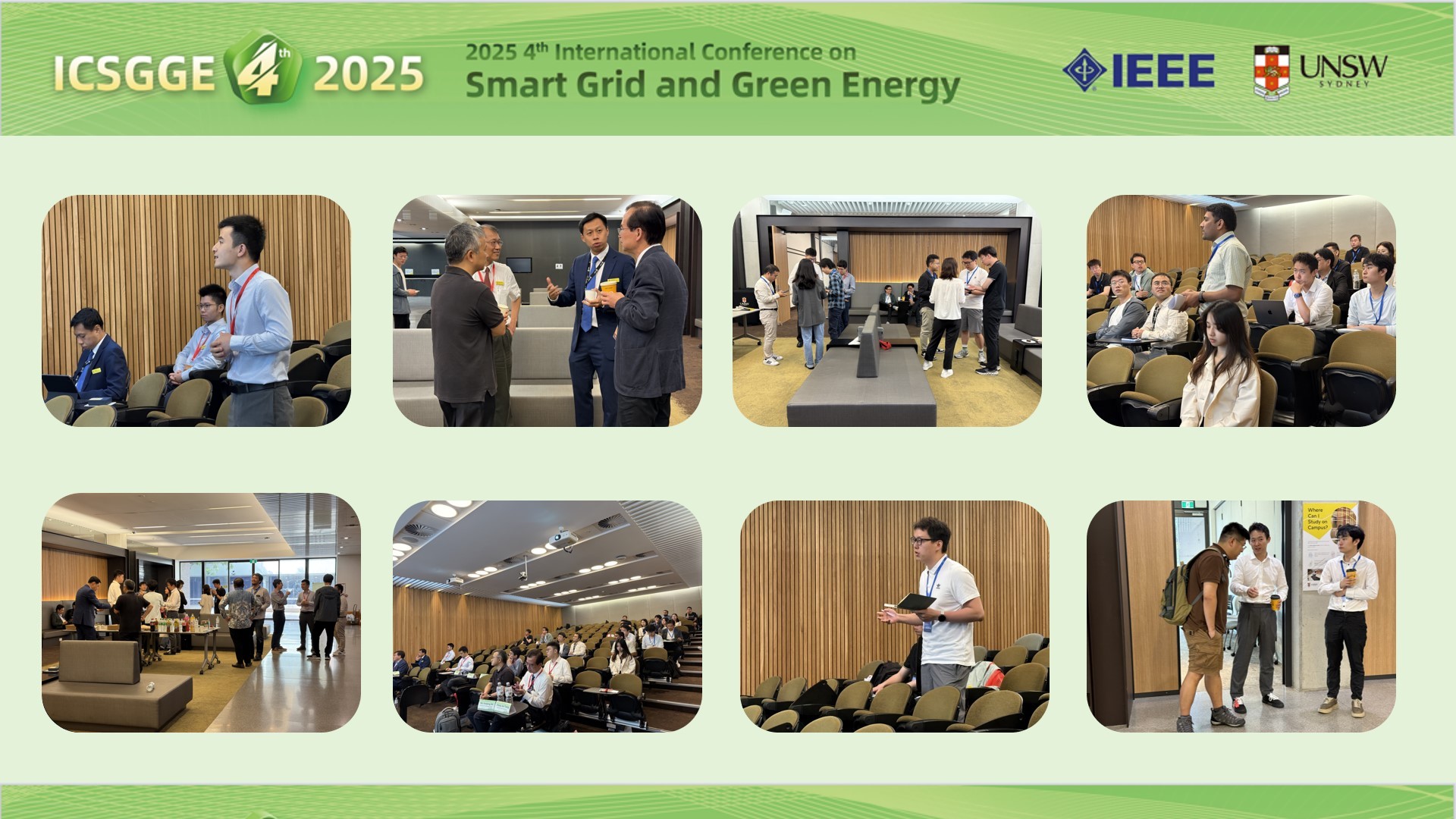
2025 4th International Conference on Smart Grid and Green Energy (ICSGGE 2025) has concluded successfully!
From February 28 to March 2, 2025, the 4th International Conference on Smart Grid and Green Energy (ICSGGE 2025) successfully concluded at the Colombo Building, Kensington Campus of the University of New South Wales in Australia.With technical support from IEEE and the New South Wales Chapter, the conference, hosted by the University of New South Wales,received strong support from the School of Information Systems and Technology Management at the University of New South Wales, Hainan Institute of Zhejiang University, Sanya Zongheng Energy Research Institute, Zhengzhou University of Light Industry, AEIC-Academic Exchange Information Center, as well as the editorial offices ofEnergy Conversion and Economics andSmart Power & Energy Security. Adopting acombination ofonline and offline formats,the conference attracted over 100 experts and scholars from around the world to gather and discuss cutting-edge research and technological developments in the fields of smart grids and green energy.
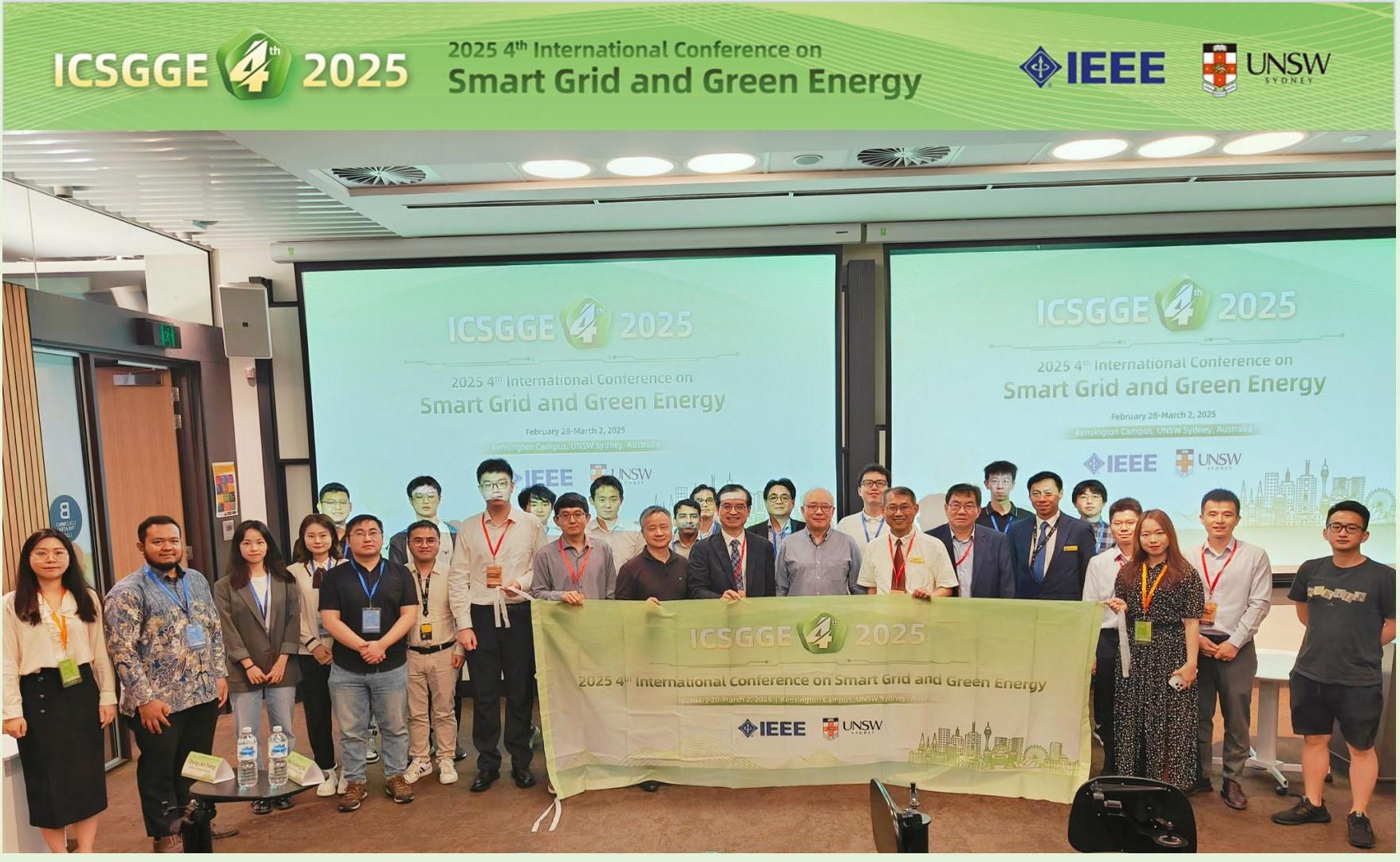
Part 01: An Academic Feast: Focusing on Cutting-Edge Fields
At the opening ceremony on the morning of March 1, the conference chair, Professor Chung-Li Tseng from the UNSW, co-hosted the event with IEEE Fellow Professor Fushuan Wen from Zhejiang University. In his welcome speech, Professor Felix Tan, Deputy Dean of the Business School at UNSW, emphasized the importance of interdisciplinary collaboration in the process of energy transition. Following this, three leading international scholars shared their cutting-edge research findings in their respective fields during the keynote speech session, which were lively and inspiring, sparking enthusiastic discussions and deep reflections among the attendees. Many representatives expressed that such international exchanges and collaborations not only broaden their academic horizons but also lay a solid foundation for future research cooperation.
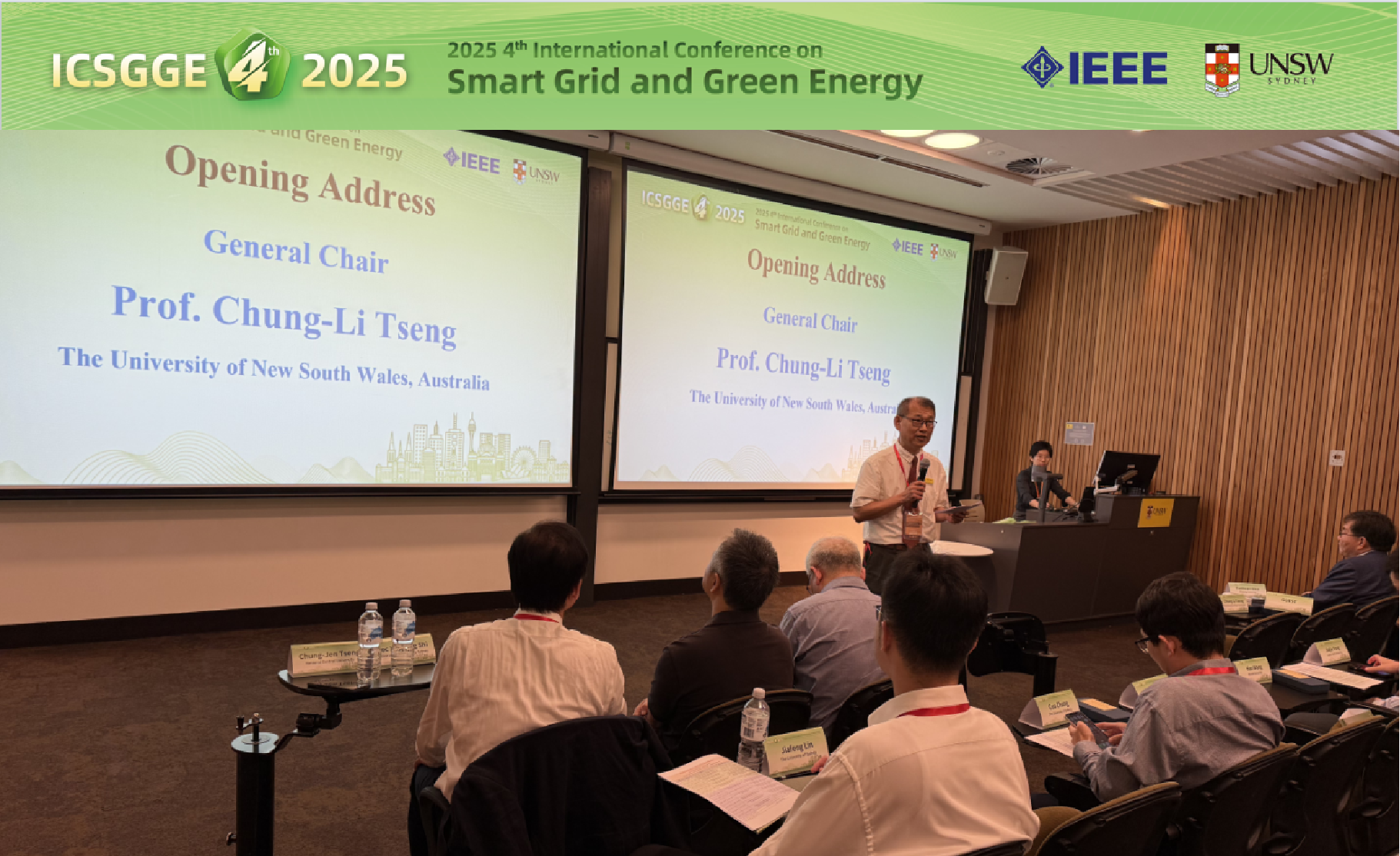
The conference chair, Professor Chung-Li Tseng from the UNSW, hosted the opening ceremony.
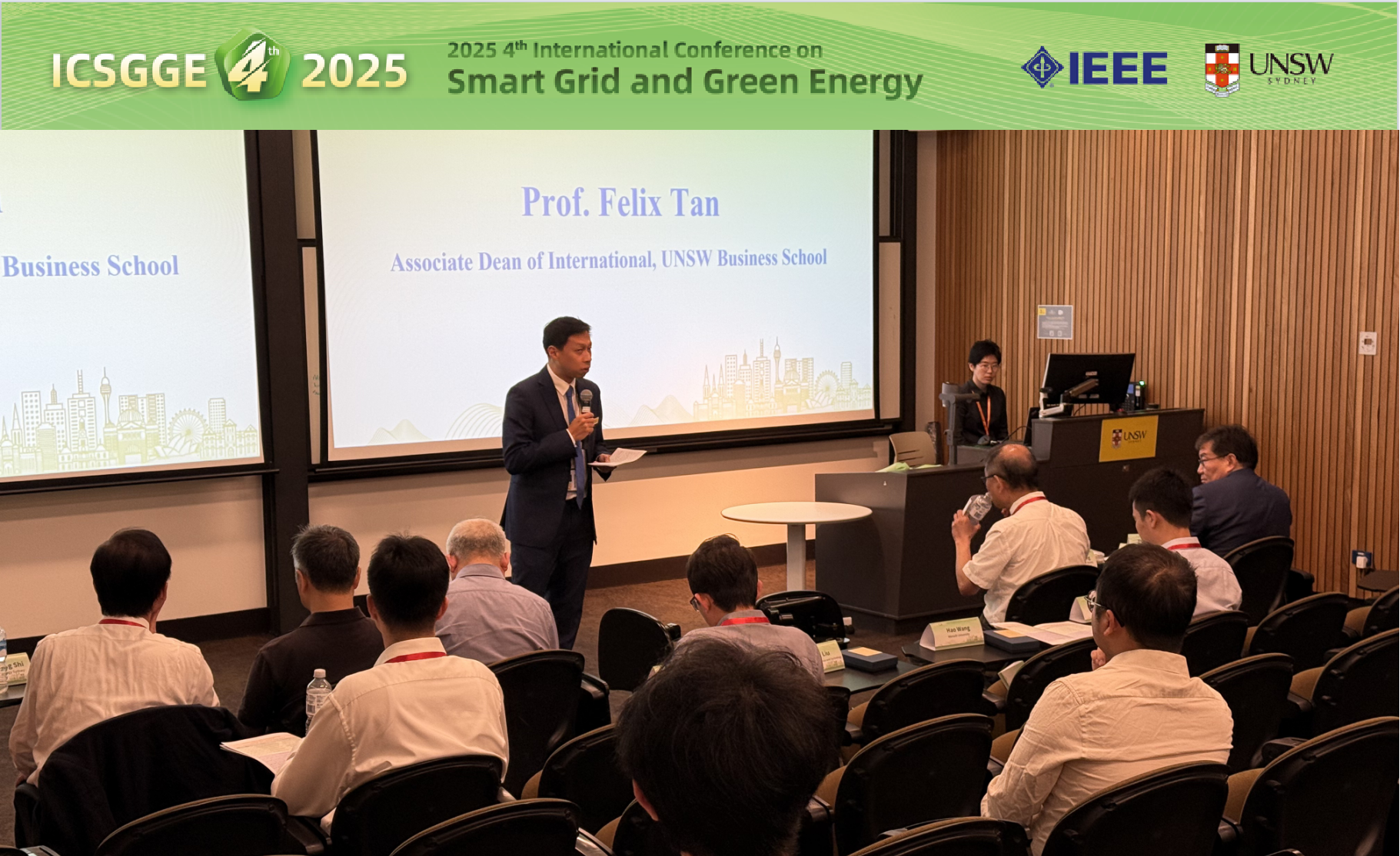
Professor Felix Tan, Deputy Dean of the Business School at the UNSW, delivered a welcome speech.
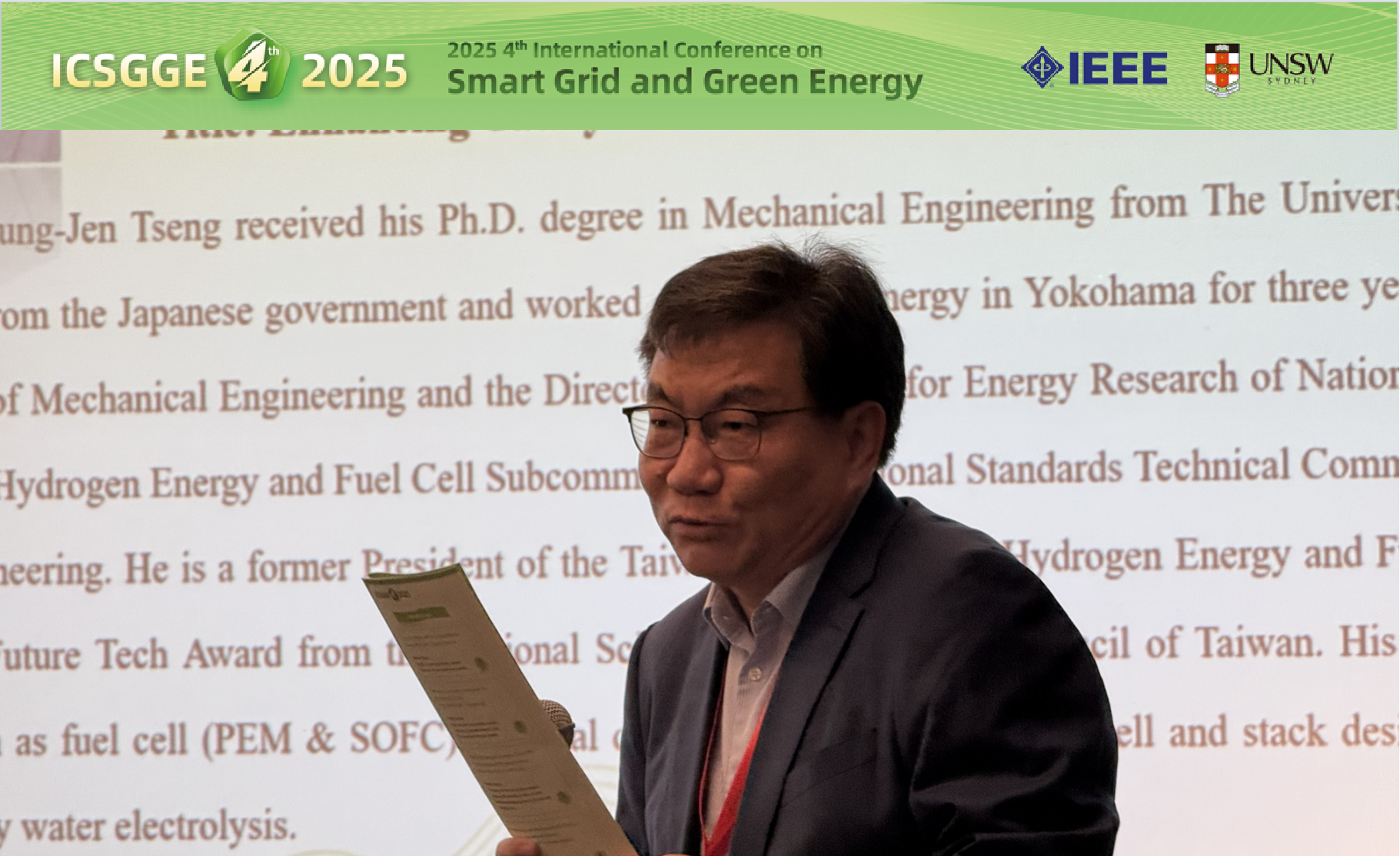
IEEE Fellow, conference chair, Professor Fushuan Wen from Zhejiang University, moderated the conference presentations.
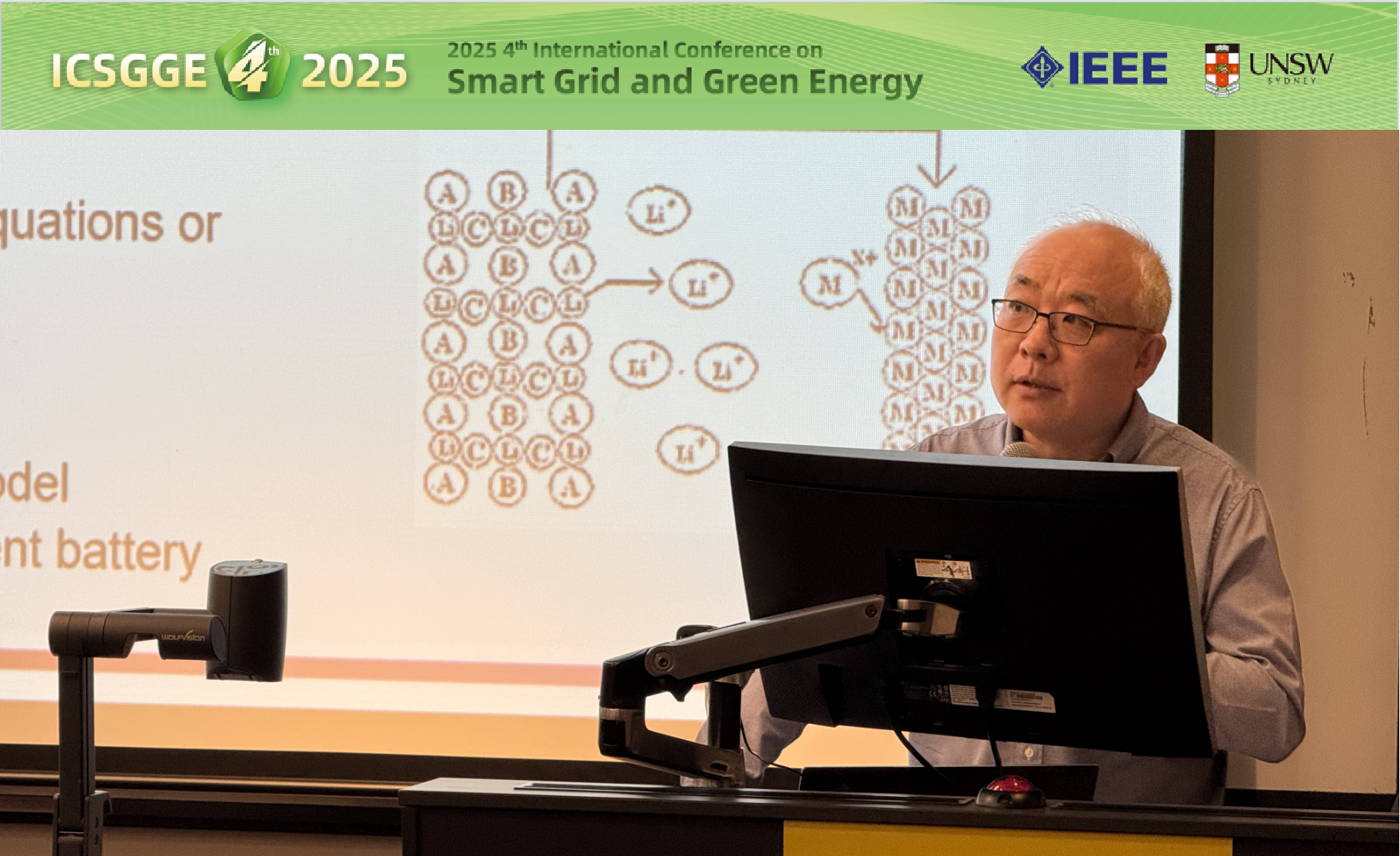
Professor Zhaoyang Dong, from the City University of Hong Kong
Title: Research on Vehicle Battery State-of-Health Estimation Based on Peer-to-Peer Personalized Federated Transfer Learning
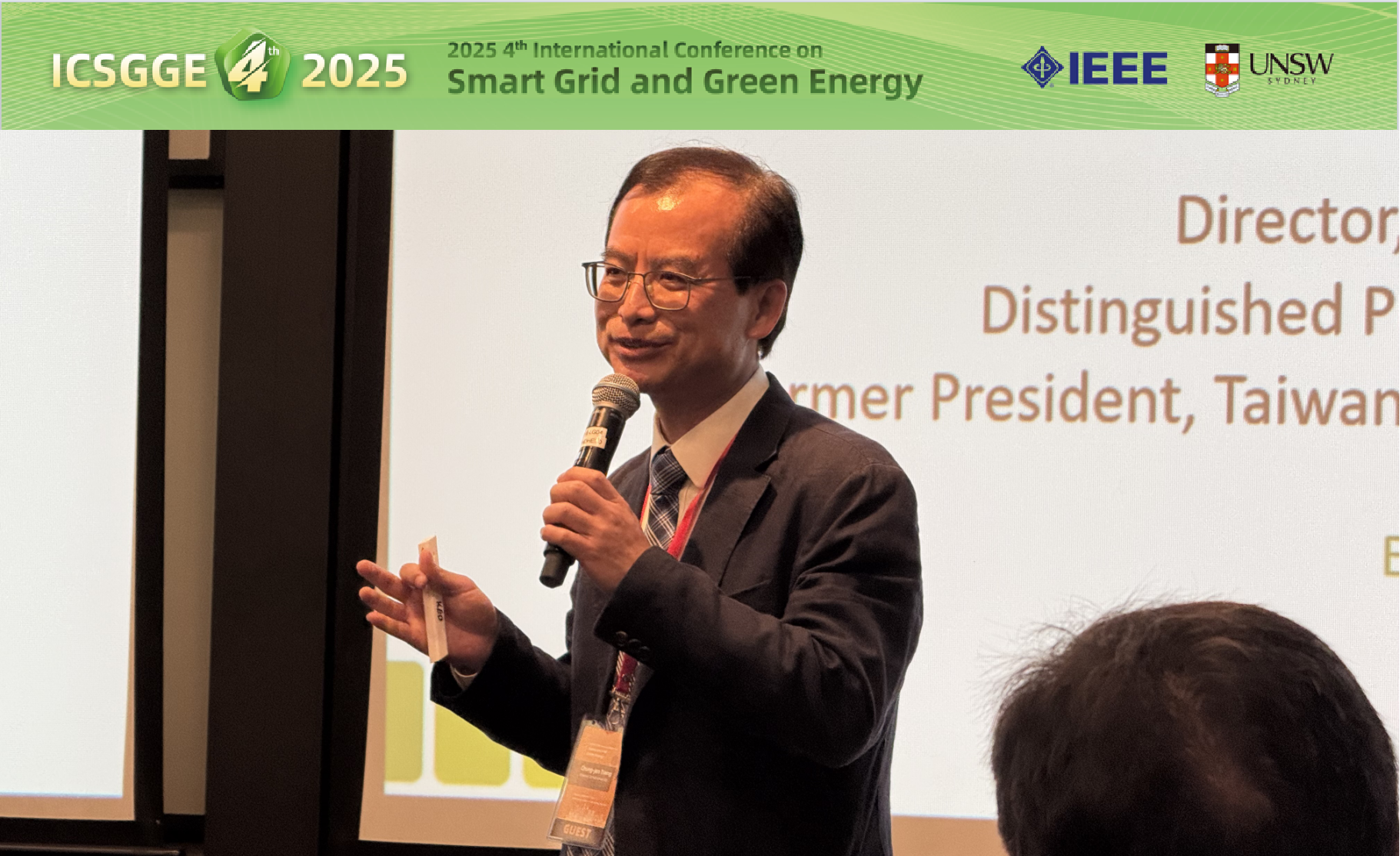
Professor Chung-Jen Tseng, from the National Central University of Taiwan
Title: Enhancing Catalyst Performance by Laser Processing for PEM Fuel Cell
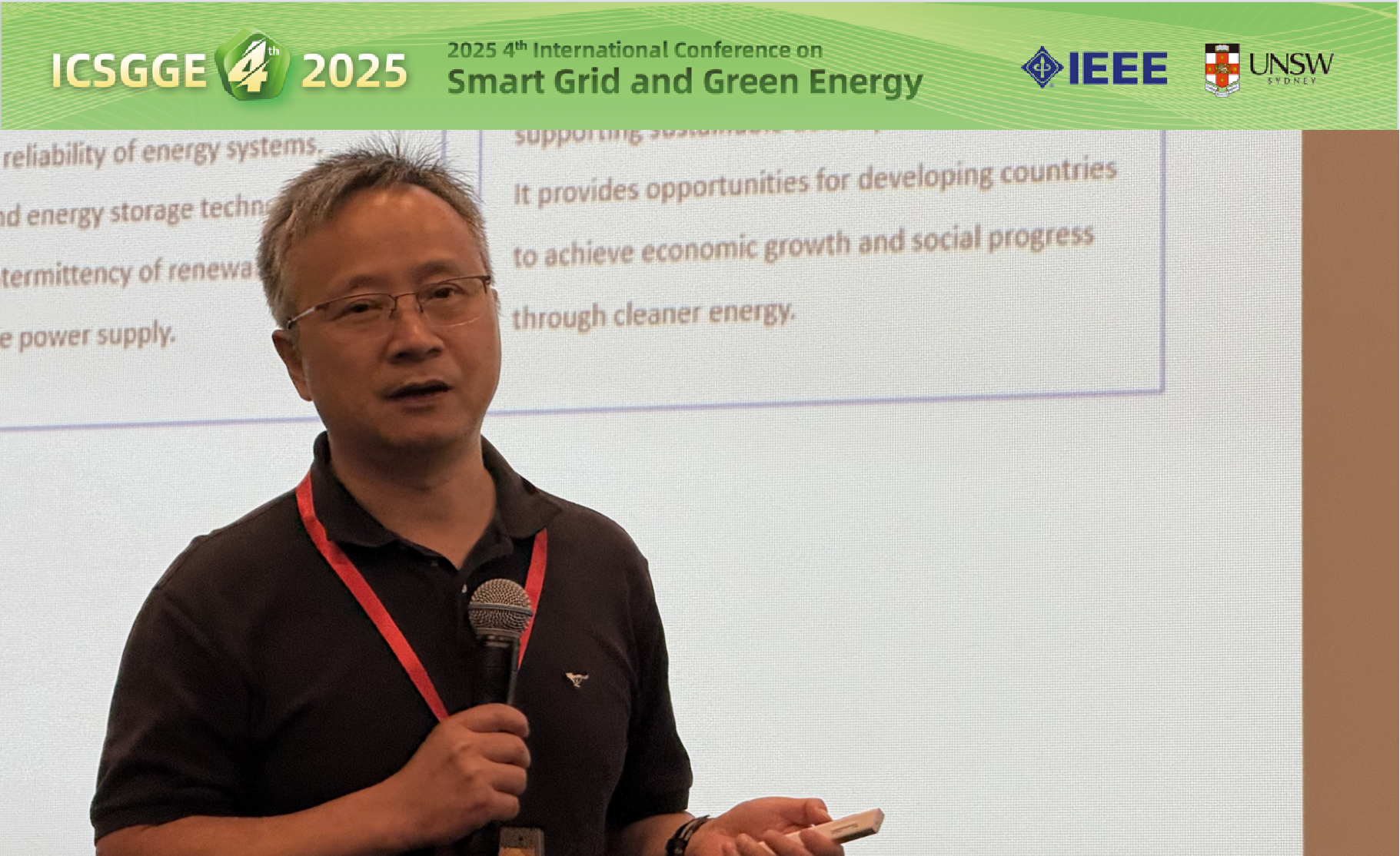
Professor Roc Xunpeng Shi, from the University of Technology Sydney
Title: Powering a Just Energy Transition: Electricity, Connectivity, and Sustainable Development
Part 02: Diverse Interactions: Parallel Sub-Forums Spark Innovation
On the afternoon of March 1, the conference established four parallel sub-forums, focusing on core areas such as power market planning, artificial intelligence-enabled grid resilience, distributed energy optimization, and electric vehicle integration. Scholars came from various countries, including the United States, Australia, Thailand, Saudi Arabia, Ukraine, and China. They presented over 60 research findings. The in-depth discussions among the scholars sparked diverse viewpoints and ignited innovative ideas, allowing attendees to gain new inspiration and insights through intense intellectual exchanges.
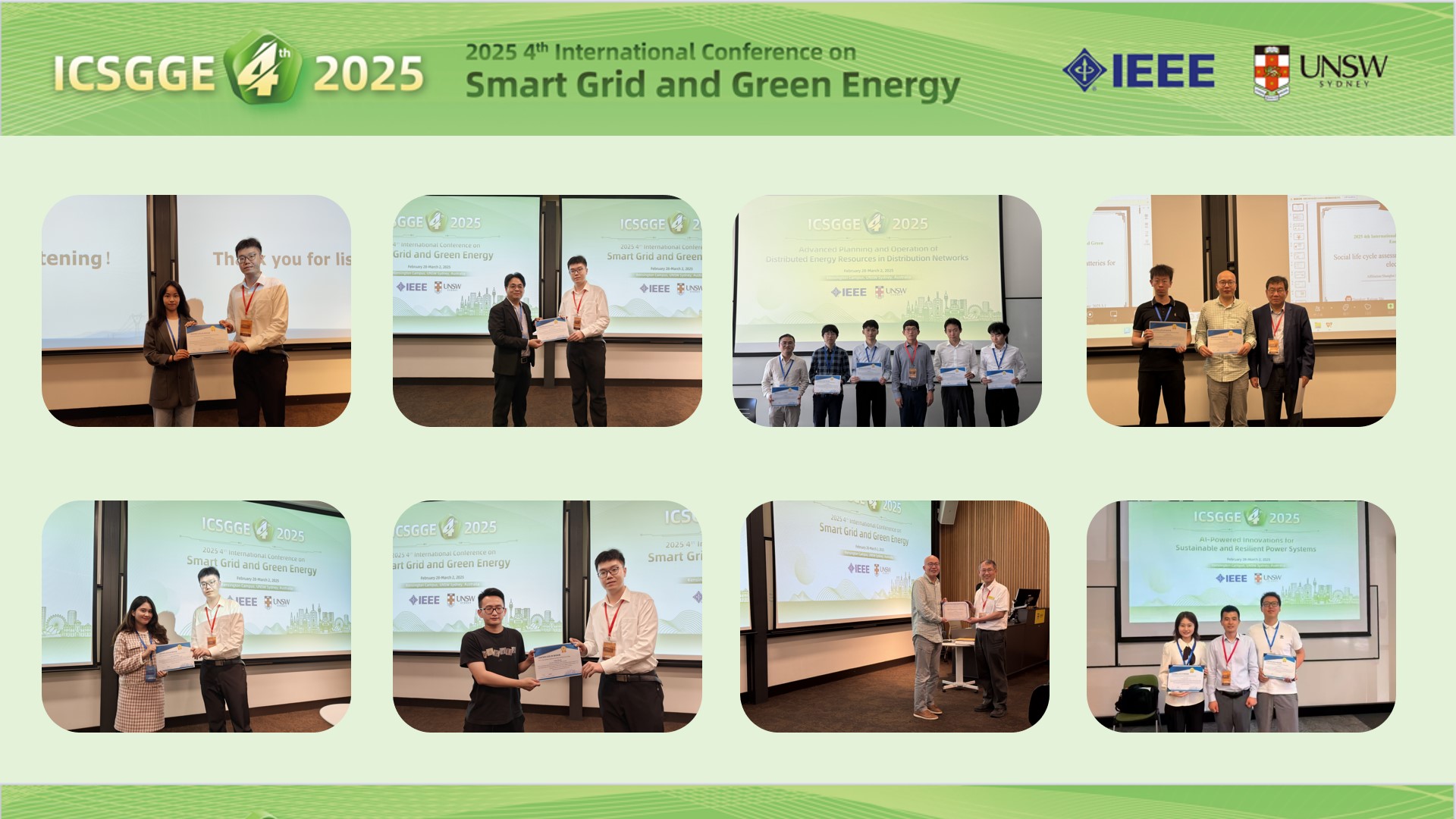
Part 03: Conclusion Outlook: Collaborative Innovationto Build A Green Future
With the successful conclusion of the 4thInternational Conference on Smart Grid and Green Energy (ICSGGE 2025), the impressive expert presentations andheated discussions have pointed the way for future development. This grand event not only promoted the interdisciplinary crossover and deep integration of smart grid and green energy, but also ignited the infinite potential for cross-disciplinary innovation. The participants, filled withhopeful expectations for the future, are looking forward to the next conference to once again discuss the latest developments and challenges in this field.
